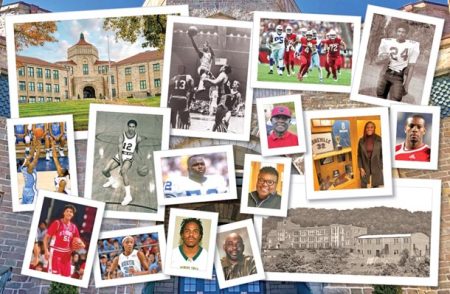Double Standards Persist

by Sharon West
I walked in the Asheville Mall for exercise recently, and experienced two interesting encounters: a fairly crowded parking lot on a Saturday afternoon with rainy, cool, and windy conditions outside; and a large mall presence inside. Walking through the mall, I noticed several groups of young men and women laughing and talking with their friends and couples with small children—a diverse crowd of people.
Continuing my walk through the food court area, something struck my attention, three young African American boys, perhaps 10 or 12 years old, walking together, talking, and laughing, not loud at all, but doing what most of us did when we were that age. One of the young boys was wearing a sweat jacket with the hood covering his head. A security officer approached him and asked him to remove the hood from his head.
Now, I am thinking … is there a policing policy on hooded jackets since the Trayvon Martin case? However, the young boy politely removed the hood from his head as the security guard stood there on his phone (not a radio) and continued to follow this young boy and his friends. The youngsters looked at each other as if to say, “What is going on?”
I walked slower while rounding the corner behind them, observing these same three boys visibly perplexed, attempting to understand why the security guard was following them. I wanted to ask them if they were okay, but I kept walking.
Entering the food court again for a second round of walking, I noticed this same security guard and another security guard walking behind a group of teenaged African American boys while escorting them up an escalator. Now I usually wouldn’t bother to stop what I am doing, but the interactions between these security guards and the older boys caught my attention. These African American boys were saying to the security guard (one of whom was the same security guard that had interacted with the younger boys), “Stop following me, man; we are leaving!”
This didn’t make sense to me, not after observing the incident with the younger boys earlier. I had observed that the older boys had been walking in the mall together (like the younger boys), just walking and talking with no rowdiness whatsoever. So, I interrupted my walk to follow security and the older boys up the escalator. I got to the top of the escalator and asked the security officer what happened.
One security guard who seemed to be present in each case stated, “They were doing ‘cat calls’ to the ladies in the mall, and that is in violation of our policy.” One of the boys responded by saying, “So when I see a young lady and say ‘what’s up?,’ that’s a violation? I can’t do that?”
My response to the security officer was that I observed this interaction, and the young ladies took no offense to the young men recognizing them with that salutation. I also saw other ethnic males speaking to young ladies as they passed by each other in the mall. One young man walking with his buddy turned around to check out the female’s body dimensions, which apparently didn’t seem to merit a security guard escort from the mall. Also, the term “cat call” is in a policy? Is that subjective? Are there examples of “cat calls”—just to be clear? Since when is language referencing females approved as “cats?”
My thoughts are two-fold, and I hope the security guards will read this. Young man, you are somebody’s son. They love and cherish you. There are no metal detectors in the high-traffic areas of the mall that I can see. It is important that you choose ever so carefully the situations that warrant intervention. In my thoughts, “cat calls” do not constitute one of them! This person could have had a weapon, and you are not allowed to carry one. I’m not implying that this person had a weapon, but what if he or his buddies did? What if one of these young men left angry and came back with a weapon? Is your salary or the policy of not being allowed to carry a gun worth approaching someone because of a perceived “cat call?” Your life is worth more than that.
Sometimes, I believe that once a uniform is donned, a surge of power emerges. Please remember, your family wants you home and safe. If there was a fight, argument, theft, etc., then you should act and do what you are trained and permitted to do. In the world we live in today where folks will just as soon shoot as walk away peacefully, please use wisdom. Attempting to impress fellow co-workers is not impressive if you would have gone down with a bullet or stab wound.
I firmly believe that adding crisis intervention training (CIT) would be a vital addition for the security employees’ training curriculum. Though this training focuses on law enforcement encountering individuals with mental health challenges, there are basic skills that would be applicable to all those in a role of law enforcement, including security personnel.
Profiling was obvious in this situation, and can inflame an otherwise calm situation. The local Sheriff’s Department and the Asheville Police Dept. have participated in crisis training with wonderful results that promote a non-inflammatory environment.
Should they decide to enter the mall or any store within the mall or anywhere else, individuals should not be perceived as a threat based on skin color. Also, groups of two to three or more should not add to the perception of a threat to safety. As a mother of an African American son, my son should not be stalked or considered aggressive or criminal based on the color of his skin. When I saw this occurring to these two groups of boys today, the maternal instinct arose in me, and I intervened as a mother.
The older group of boys left after I spoke with them, as they were on their way out of the mall anyway. The guards were obviously feeling awkward after I approached them and questioned their motives before their superiors. I am sure there was no intent for mall security to cause harm, but inadequate understanding of the role they represent was obvious. Stay alert, and let’s help each other rather than look for ways to reduce or demean each other.






